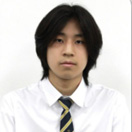Detention of Telegram founder, Pavel Durov, due to Telegram’s lack of cooperation with the police force

[Image of Telegram application showing on the phone. Credit to Pixabay]
Pavel Durov, co-founder and CEO of Telegram, was arrested on August 26, 2024, by the French police at the Le Bourget Airport right after his private plane landed due to Telegram’s uncooperative stance with the police.
Pavel Durov was coming from Azerbaijan and two French policemen could spot his name on the passengers list. They then immediately got ready to arrest him since he was the subject of an arrest warrant in France.
French officials stated that the arrest was related to investigations of Telegram’s lack of policy to prevent its services from being used for illicit purposes such as drug sales, distribution of child sexual abuse material, and fraud.
However, when Pavel Durov was caught he said he had nothing to hide from the governments in Europe and that Telegram abides by EU laws, which is why he made frequent travels within Europe.
After Pavel Durov was caught, Telegram stated “We’re awaiting a prompt resolution of this situation. Telegram is with you all,”, showing their support for Durov.
Telegram is one of the most popular and secure messaging services, mainly used in Eastern Europe and the Middle East.
This application was briefly banned in Russia in 2018 when Pavel Durov declined to surrender the encryption key to Russian authorities.
The ban was, however, removed in 2021 due to Telegram’s widespread use and public demand to allow Telegram usage.
Hence, the French government had expressed concerns about the app’s moderation policies and Telegram’s reluctance to share application data with police forces.
The police force seeks access to Telegram’s data to detect and investigate crimes such as terrorism, trafficking, and distribution of prohibited content to prevent the crimes from further spreading.
However, unlike other social media platforms such as Snapchat, Facebook, and Instagram, Telegram is not an active member of the Internet Watch Foundation (IWF) or the National Center for Missing & Exploited Children (NCMEC).
Telegram’s sole non-participation brings great concern to many countries around the world.
More specifically, NCMEC has repeatedly demanded Telegram to join to help tackle the child sexual abuse crisis but Telegram has completely ignored these requests, making numerous children vulnerable.
Meanwhile, an IWF spokesperson has stated: “Despite attempts to engage with Telegram, they are not members of the IWF and do not take any of our services.”
Furthermore, it has also been revealed that Telegram is not a part of the TakeItDown programme, which works to remove so-called “revenge porn”.
Interestingly, Pavel Durov has been very sensitive regarding issues of sharing privacy and encryption with the government, which brought wars with governments.
These concerns are especially crucial given the current debate between user privacy and national security and particularly in the European region where laws like GDPR impose strict rules on data protection.
Other celebrities and important figures, including the American whistleblower Edward Snowden and Elon Musk, also shared their opinions on the situation, highlighting the implications on digital rights and freedom of speech.
Elon Musk described the arrest as an “attack on free speech”, expressing disapproval of European authorities’ actions towards Pavel Durov.
The American whistleblower Edward Snowden strongly condemned Durov’s arrest, framing the arrest as an assault on fundamental human rights of speech and association.
Other reactions, such as the public’s reaction to Pavel Durov’s detention appear to be mixed.
Many tech entrepreneurs and internet freedom advocates have condemned the arrest, viewing it as a threat to free speech and privacy.
There are also voices arguing that Telegram’s efforts to combat illegal content are “not sufficient”.
Hence, this incident has stirred numerous debates and discussions about social media companies' roles in content moderation and their interactions and communications with police forces.

- Choi Sunwoo / Grade 10
- KIS Jeju

![THE HERALD STUDENT REPORTERS [US]](/assets/images/logo_student_us.png)
![THE HERALD STUDENT REPORTERS [Canada]](/assets/images/logo_student_ca.png)
